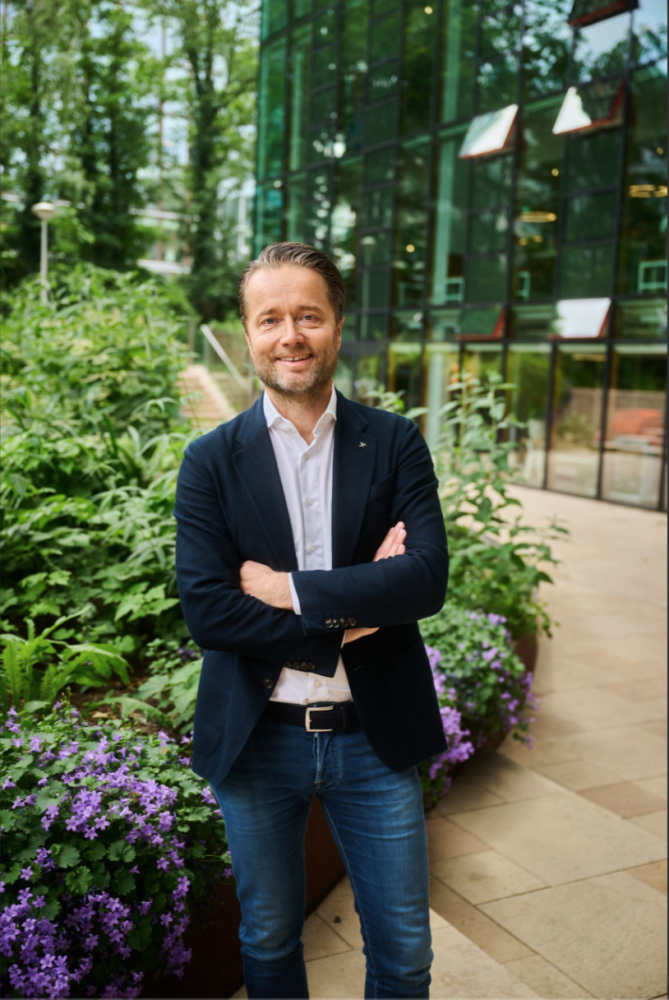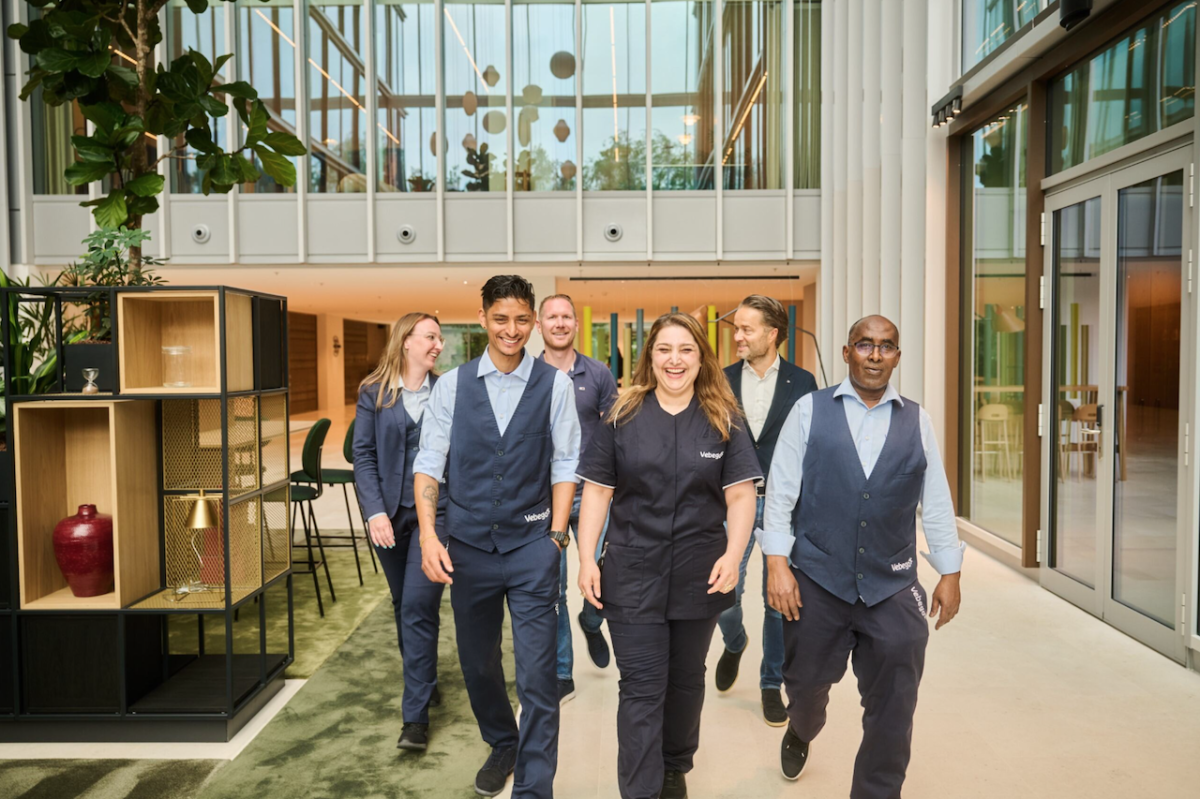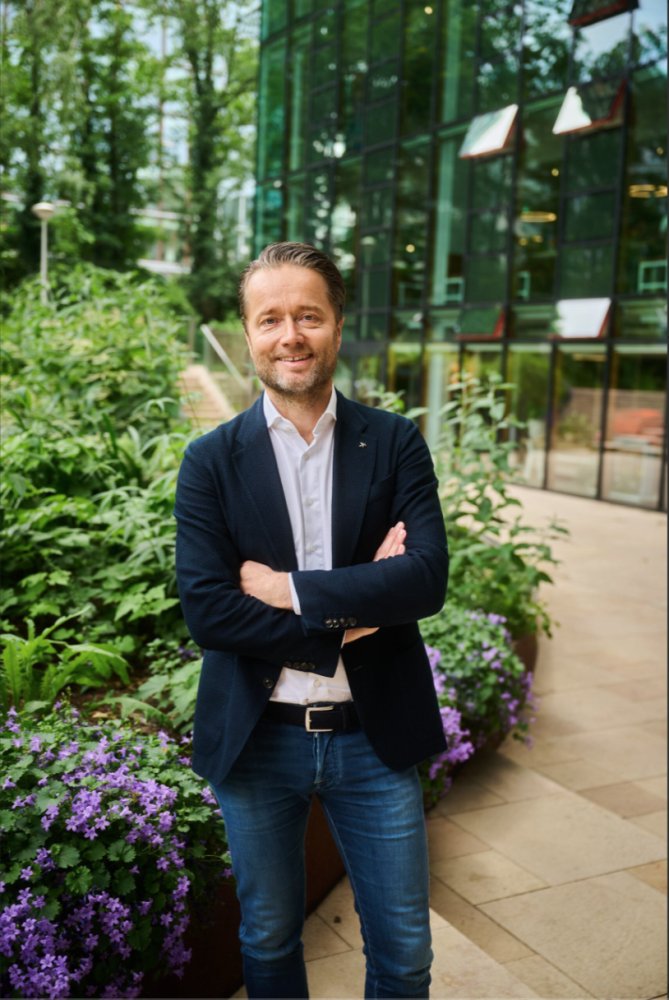INTERVIEW WITH TON GOEDMAKERS, CEO OF VEBEGO
“VEBEGO WANTS TO CREATE MEANINGFUL JOBS FOR PEOPLE FROM THE BASE OF OUR SOCIETY''
As CEO of Vebego, Ton Goedmakers heads a family business that started out in 1943 as a window cleaning company, founded by his grandfather. Since then, Vebego has grown into a facility services market leader, specialised in cleaning, care services and grounds maintenance, and one of the largest employers in the Netherlands. As the third generation heading the company, Ton is adamant about providing meaningful employment, particularly for people who are at a disadvantage in the labour market. He developed an interest in diversity and inclusion early on, while working side jobs as a cleaner. Ton underlines the value of an inclusive working environment, one in which people from different backgrounds can work and grow together. Vebego’s office in the newest tower of WTC Amsterdam is strengthening their visibility and involvement in the community.
Ton, can you tell us something about the origins and history of Vebego?
“Vebego has a unique origin story. My grandfather, Tonny Goedmakers, began a window cleaning company in 1943, during the Second World War. He did it out of necessity in order not to have to go work in Germany. The company grew rapidly after the war, with DSM and Philips being our first big clients. Pretty soon, the company was expanding, spreading its wings towards, Switzerland and the Benelux. Our focus shifted to facility services, care services and landscaping. Today, we are the market leader in facility services, even though our name is not widely known. That’s one objective for the years ahead: that everyone will recognise us.”

Vebego is a family-owned company. At what point did you realise you wanted to take a place in Vebego?
“I kind of fell into it. I always enjoyed working with people from all walks of life and cultures. After some cleaning jobs and work experience, my uncle asked me to join Vebego. I took charge of all our operations in Switzerland and lived there for eight years. I returned to the Netherlands in 2018 and now I’m CEO of the company. What I have always enjoyed most of all, is being able to work with my enthusiastic colleagues.”
You are at the head of the organisation, but to an outsider there seems to be no hierarchical structure. Why do things this way?
“When starting out during the war, my granddad hired a ton of people straightaway so he could build a solid business within a short time-span. That spared him the ordeal of having to go to Germany, and obviously he was very grateful to his employees for that. That gratitude is in our DNA. Having a decent job is very important for people, especially vulnerable people. We do all we can to make it feel right for them and enable them to work in a safe environment. Our clients aren’t paying for me to do my job, but for the services my colleagues provide. It’s important to stay aware of that.”
Why open an office at this location?
“We opened an office in Tower Ten to be closer to our clients and strengthen our presence in Zuidas. As a facility services provider, we want to make the work our people are doing more visible and allow it the spotlight it deserves, both for them and for our clients. Just recently, we signed a letter of intent with the municipality of Amsterdam to guide fifty people to paid employment every year. Even before signing, we had already successfully placed 26 people. Vebego is very proud of that.”

You would like to share your knowledge about D&I with other organisations in Zuidas. Why is this important to you?
“Diversity and inclusion is rooted deeply into our DNA, because we believe a divided society is not conducive to a better world. We have eighty years’ experience as one of the largest employers of disadvantaged workers. We see it as our duty to share our knowledge and inspire other companies on the value of inclusiveness. It all begins with awareness, and Vebego is happy to contribute to that.”
Do you see opportunities in Zuidas?
“We see a variety of opportunities around diversity and inclusion that are currently not being fully exploited in Zuidas. Though gender ratios and the mix of nationalities are improving, the group of disadvantaged workers continues to be a challenge, as does the inclusion of vocational graduates. Getting companies to see the value of this diverse talent pool is essential. Zuidas shouldn’t be only for university-educated professionals. Inclusion is crucial for a thriving society. We need to provide support, not only for those who are doing well, but also for those who need it.”
